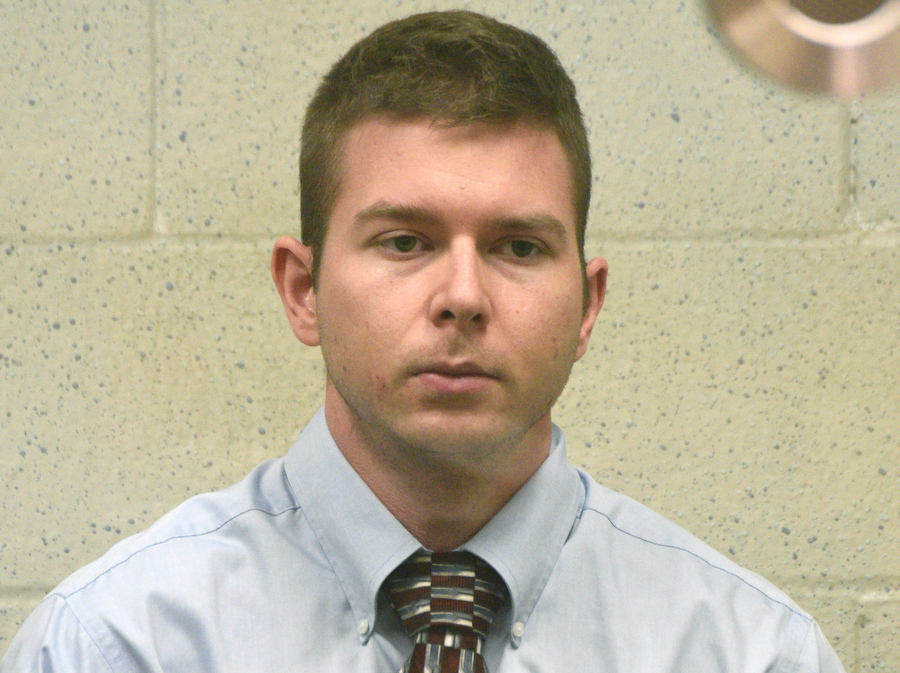Han Murder Trial Gets Off to Sordid Start
Crime Details Emerge During Preliminary Hearing

The prosecution wasted little time getting to the point in the preliminary hearing for Pierre Haobsh, who is charged with murdering Chinese herbalist Dr. Henry Han; his wife, Jennie Yu; and their 5-year-old daughter, Emily Han, in their Goleta home on March 23, 2016. According to Santa Barbara County’s Sheriff’s Office Detective Jeffrey McDonald, on the night of the killing, Haobsh confessed to a Thousand Oaks associate named T.J. Direda that he had killed the Han family; Haobsh had been unsuccessfully trying to enlist Direda’s assistance in disposing of the three bodies.
Direda contacted law enforcement officers on March 25, notifying deputies with the Sheriff’s Office that he’d been contacted by Haobsh and giving them the gist of the call. Detectives interviewed Direda the following day. According to McDonald, Haobsh first texted Direda and then showed up at his Thousand Oaks home an hour later. “He said he needed assistance, that he had just killed three people and needed help getting rid of the bodies,” McDonald recounted under direct questioning by prosecutor Hilary Dozer.
McDonald testified that Haobsh explained he had killed Han for $20 million he believed Han possessed and that he had access to Han’s bank account via his cell phone. McDonald also testified that Haobsh described to Direda how he’d wrapped the three bodies up in plastic sheets, taped with duct tape, after shooting the victims. After putting two of the wrapped-up bodies in the trunk of his car, Haobsh told Direda, he discovered there wasn’t enough space to fit the third. That’s when he contacted Direda, who was growing marijuana and had been involved in the pornography business, as a cross-examination by Haobsh’s defense attorney, Mindi Boulet of the Public Defender’s office, revealed. As Boulet sought to pursue this line of questioning, prosecutor Dozer objected, arguing there was no relevance to the information being sought. Boulet said she wanted to show Direda’s involvement in “organized crime.” Judge Brian Hill sustained Dozer’s objections and did not allow Boulet to proceed.
After Haobsh left Direda’s residence, McDonald testified Haobsh texted Direda first at 3:57 in the afternoon and later at 7:35 in the evening. In the first text, Haobsh invited Direda to Vegas. “Care to come to Vegas tonight?” he asked. “I’ll pay.” The second text was made shortly after Haobsh had returned to the Han home to dispose of the bodies. By then the bodies had been discovered, and there was an abundance of law enforcement. “Am screwed,” the text read. “They just found everything. My life’s over.”
McDonald had also testified that Direda explained he initially thought Haobsh was joking and that he’d played along. Only two days later, after his mother notified him of media reports that Han had been murdered, did he take Haobsh’s claims seriously.
McDonald testified that key details of the crime had been kept from circulation intentionally. That way, no one but the killer would have access to key details. The import of McDonald’s testimony was that nobody but Haobsh knew where the bodies had been left — in Han’s garage — that they’d been shot, and that they’d been tied up with plastic and duct tape. Defense attorney Boulet sought to attack the confession a couple of ways. First, she noted that Ron Goldberg and an associate had been at the Han household when Sheriff’s deputies first discovered the bodies. It was Goldberg, in fact, who had first asked the deputies to conduct a “suspicious circumstance welfare check,” because Han had missed a business meeting earlier in the day. That, according to testimony, struck Goldberg as highly unusual for Han.
During the cross-examination of Det. McDonald, Boulet established that Direda and Goldberg had some sort of association, though the nature of that relationship wasn’t clear. Goldberg was the last person to see Dr. Han alive, having eaten dinner with him the night he was killed. Boulet’s line of questioning was designed to suggest Direda could have learned details of the killing from Goldberg, reportedly a longtime friend and business associate of Han’s, not necessarily from Haobsh. Boulet underscored with her questions the length of time it took Direda to notify law enforcement officials of Haobsh’s claims. That, coupled with Direda’s involvement in the marijuana business — Boulet suggested he was growing pot for Dr. Han, but Det. McDonald said he’d never been told that — suggests at least one line of the defense’s attack.
McDonald also testified he never determined if Dr. Han had the $20 million that Direda claimed Haobsh told him he hoped to get.
District Attorney Joyce Dudley has never sought the death penalty in any prosecution during her term in office. Typically, that determination isn’t made until after the preliminary hearing has concluded. No such determination has been made yet in the Haobsh case either, but prosecutor Dozer gave a hint that this might be the first. As a procedural matter, in death penalty cases, court transcripts of the proceedings must be provided on a daily basis. That’s not required when the death penalty is not sought. Prosecuting attorney Dozer asked Judge Hill to order daily transcripts. Judge Hill said he would review the case law before issuing any ruling. If the law requires, Hill said, he’d comply. If not, he wouldn’t.



